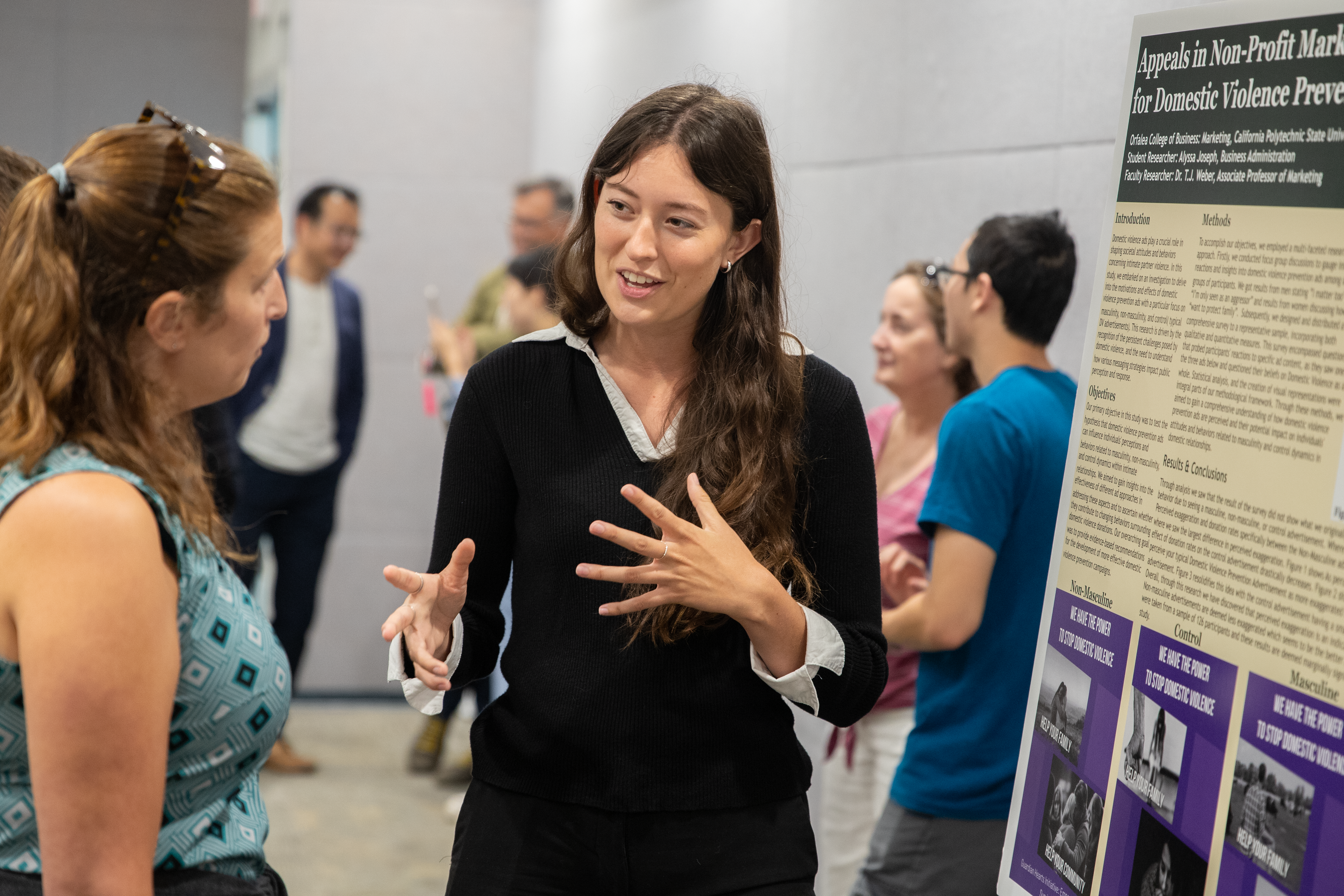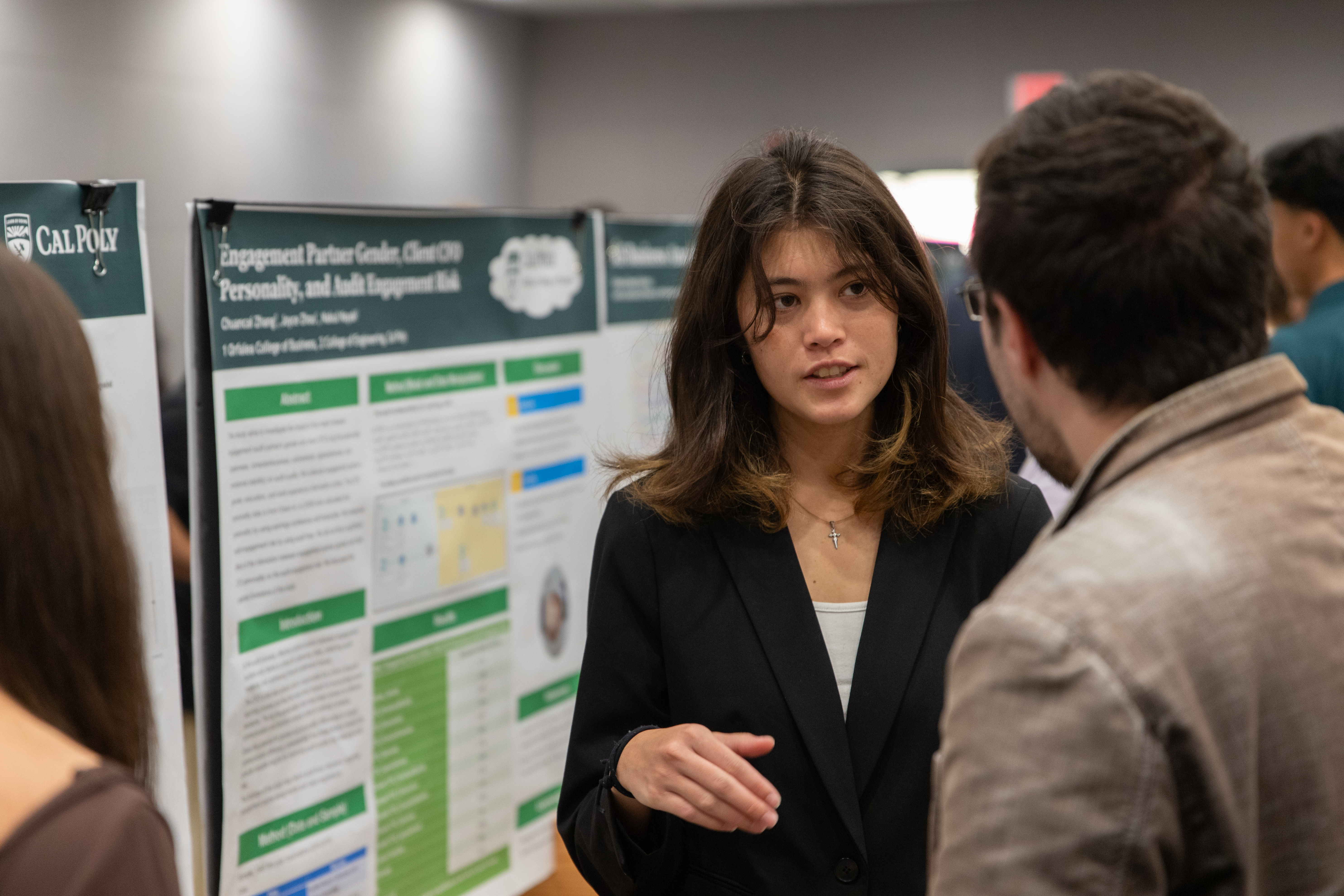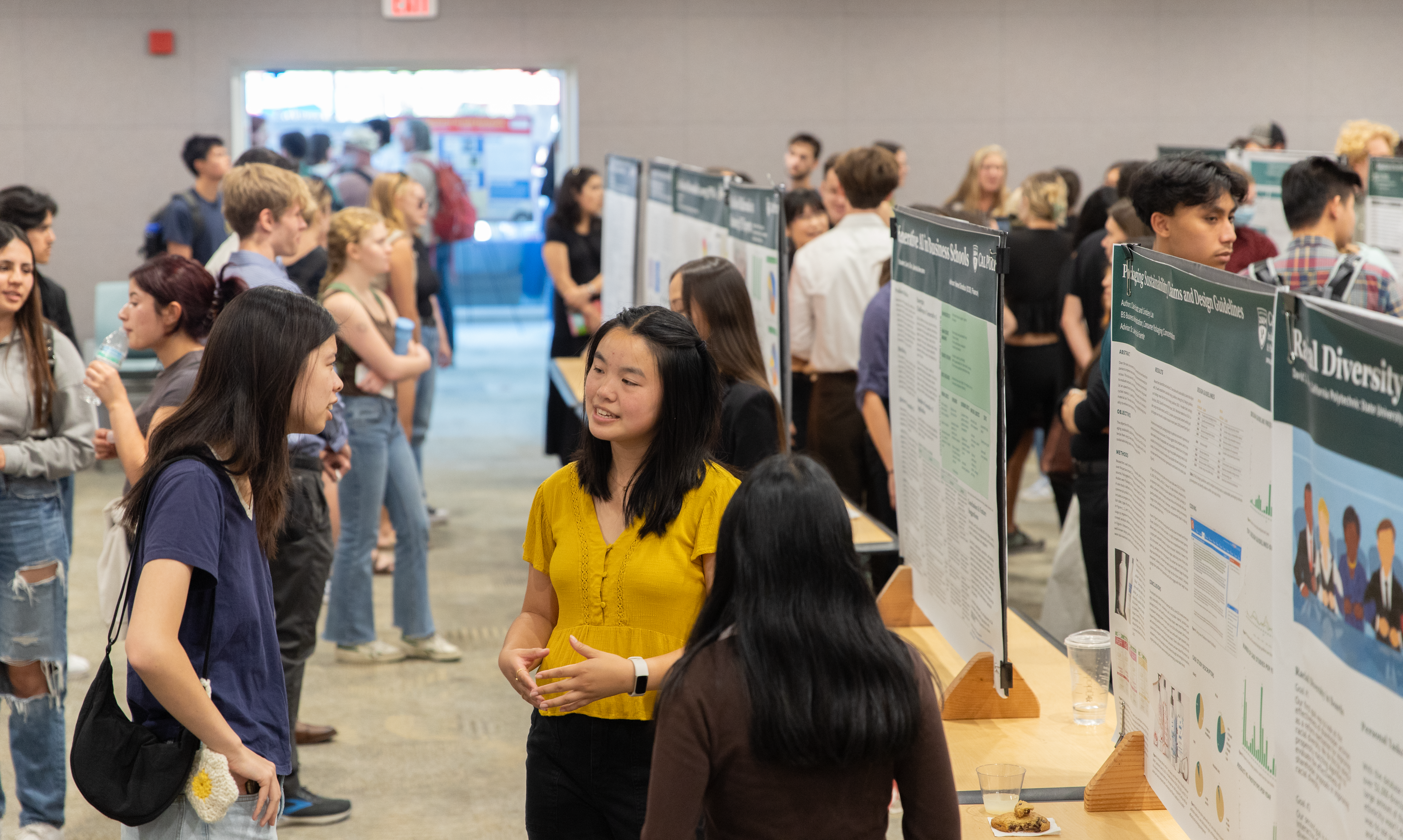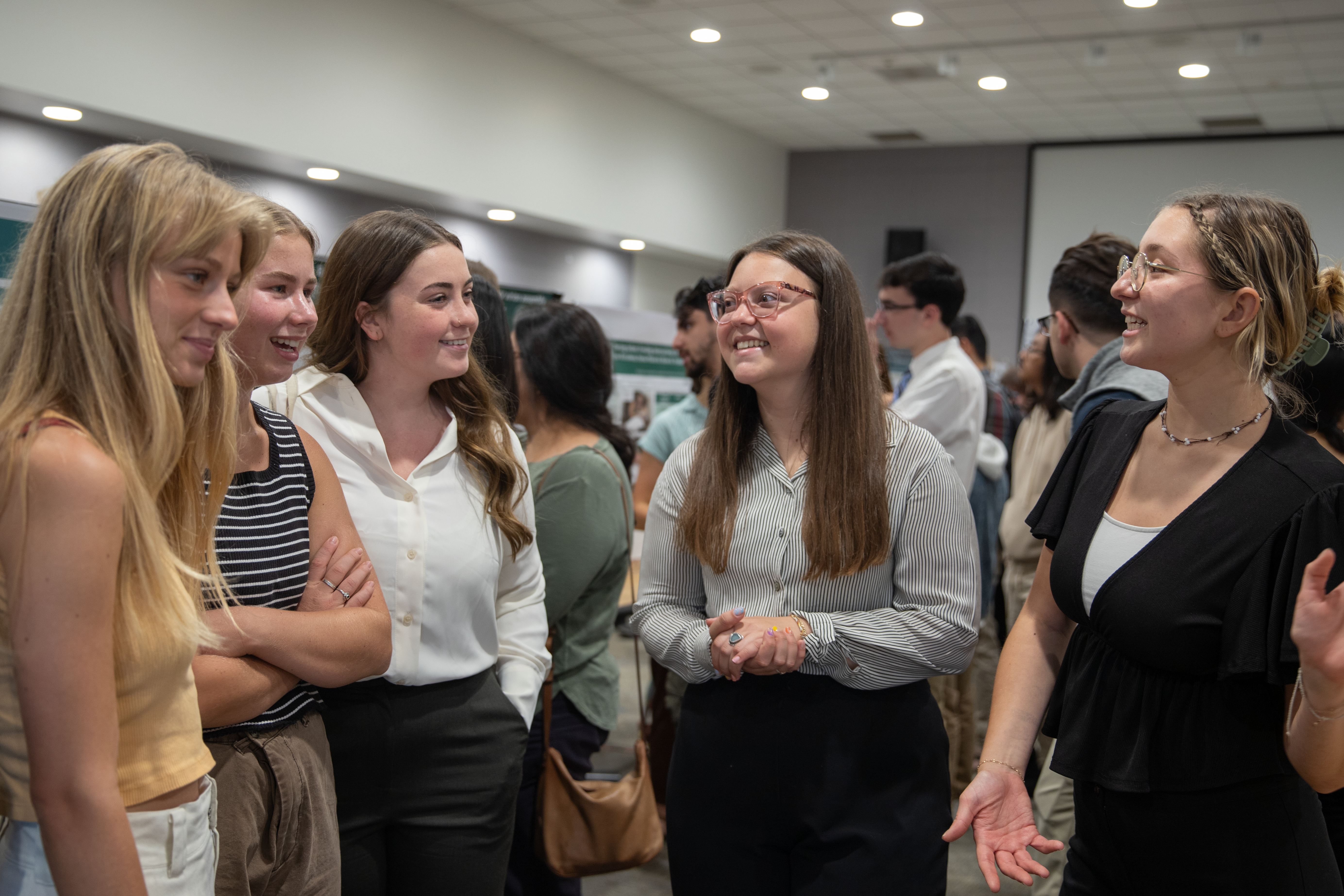Summer Undergraduate Research Program Provides Opportunities for Students to Have an Impact While Working Closely with Faculty Mentors

Several students participated in the Summer Undergraduate Research program, which concludes with a symposium, where they discuss their findings. (Photo/Jahan Ramezani)
Hoping to maximize the SLO Food Bank’s marketing impact, Director of Development Branna Still wondered whether their promotional materials should feature children or elderly subjects in need.
“Our direct response campaigns are crucial to funding the SLO Food Bank’s hunger relief network,” said Still, noting that 87 percent of the nonprofit’s 2022 operating budget came from local fundraising. “Knowing what compels our supporters to offer financial support improves the efficiency of these efforts.”

Business administration student Gabriella Knudson discusses her SURP project, which entailed research conducted for the SLO Food Bank with faculty member Miranda Yin. (Photo/Jahan Ramezani)
While there was research about the effectiveness of using children and seniors in campaigns, said Miranda Yin, an assistant professor of marketing, “there’s no research comparing the two.”
So Yin began researching “charity protagonists” and included two students from the Summer Undergraduate Research Program (SURP).
“One thing I’m really passionate about is to not just tell students that A leads to B, but why A leads to B,” Yin said. “I like to tell them the reasoning behind it, so they have a better understanding of the phenomenon rather than just simply remembering A leads to B.”
SURP pairs newer students with faculty mentors to work on real-world research, offering students industry-relevant experience, said Bruce Greenbaum, Orfalea College of Business’ associate dean for programs and learning. After eight weeks of research, students present their findings to the public during the SURP+ Symposium, held on campus.
“Students develop a variety of skills,” Greenbaum said, “including data collection and analysis; academic writing experience; presentation experience through the SURP symposium; and the ability to address questions from students and faculty directly when sharing their research at the symposium.”

This past summer, 23 students from the Orfalea College of Business participated in the Summer Undergraduate Research Program, which pairs students with faculty mentors to perform real-world research. (Photo/Jahan Ramezani)
At the Orfalea College of Business, there were 14 SURP projects this year, with 23 students participating. Some of these projects identified sustainable design trends in the packaging industry, analyzed the causal effect of military service on the long-term health of veterans and looked at online fake news.
Economics major Carly Zhou, whose focus is real estate finance, worked with fellow student Gabriella Bencomo of San Jose, California, and Hamed Ghoddusi, associate professor of finance, on a project researching generative artificial intelligence, or AI, in business schools.
“We looked at generative AI as a new emerging technology and what it entails for educational purposes, teaching future business leaders,” Zhou said. “Our recommendation for generative AI is to approach with caution. It’s very emerging. It’s very new. So there’s a lot of potential for misuse as there is for innovation.”
Prior to the project, the Irvine, California, resident wasn’t that familiar with the topic, but she enjoys learning about new technologies.
“It took a lot for me to delve into an area of research that was completely unfamiliar to me,” she said. “So I definitely grew as a person professionally in terms of how I approached researching this new paradigm.”
With SURP, Greenbaum said, students witness the true impact of their work, as with the SLO Food Bank research.
“The stakes are much higher than in the classroom, and this opportunity heightens the value students can realize from their academic work,” he said.

Students have a discussion during the SUmmer Undergraduate Research Program symposium, held at the Advanced Technologies Lab on campus. (Photo/Jahan Ramezani)
For the food bank project, Still was mostly looking for ways to appeal to donors via direct mail, emails and social media, though she was also considering content for brochures, print ads, commercials and the nonprofit’s website.
Yin surveyed 187 people, asking how much they were likely to donate to appeals with different charity protagonists. The results showed that using children in promotions was more likely to motivate donors to give than elderly protagonists.
Business administration student Gabriella Knudson, whose concentration is information systems, said this project helped her realize how statistics can be used in the workforce.
“We took the statistics class for business majors our freshman year but never really knew the application of it,” the Long Beach resident said. “So it’s cool to see it applied to real world content that could be important.”
Knudson worked on the project with Carolyn Gruebele, an environmental earth and soil science major.
“Last year I took my first business class and fell in love with it, and recently decided I want to switch my career path toward marketing,” Gruebele said. “And this was a great way for me to apply my STEM background and also get marketing experience.”
While all SURP projects offer opportunities for real-world research, this one, Knudson said, was even more relatable since it dealt with a nonprofit she could easily see.
“It just makes it a lot easier to connect with it, especially since it’s local, and this could make an impact to get more donations.”
